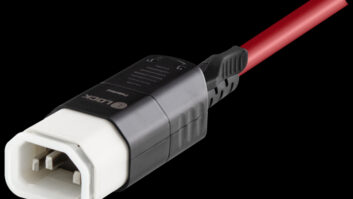The R Word in Our Industry
Aug 1, 2001 12:00 PM,
NATHANIEL HECHT
At best, inflated growth expectations could be called unrealistic.
RECESSION. THE WORD IS BANDIED ABOUT EVERY DAY BY ANALYSTS who are seeing loss reports for a rapidly growing number of companies, mostly tech related. The odd thing is that even some companies that met their quarterly goals and seem to have suffered no ill effects have still lost stock value. Layoffs have also dotted the landscape as companies try to reduce costs in feeble attempts to affect their stock prices. Why is this happening now? The dollar is strong; unemployment was just at an all-time low; the economy was booming only months ago. My theory? The unrealized expectation of unrestrained growth.
Remember when moderate growth was enough? Most people (and companies for that matter) were happy with moderate growth increases each year, believing that stability and slow growth were guarantees of a safe investment. But investors have come to expect more, thriving on unrestrained growth in earnings and inflated stock values, and seeming to think that there was no end to the heights that could be attained. At best, these expectations could be called unrealistic; at worst, criminal. The victims of these wild market effects are all of us, from those left after layoffs who must try to maintain the quality of work while short-staffed, to the investors who lost half their portfolio value in a matter of days. According to the experts, we won’t see a break from this pattern for at least six months.
The answer to how this happened comes down to perception, as many things do. With all their growth expectations, companies projected unrealistic growth to investors, who in turn purchased more stock to try to ride the wave of increased business and stock value. We know what actually happened, and the sad part is that even companies that worked with realistic growth expectations have suffered.
How does all of this impact our industry? On the surface, it seems business is still booming. Installers have plenty of work. There is still a shortage of trained labor to fill badly needed positions at many companies. Despite some manufacturers cutting back and revisiting earnings expectations, there is still product in the pipeline.
Until contractors report a change in this scenario, it seems unlikely that the downturn in stocks and the resulting changes to some companies’ work forces will affect us, especially if the experts are saying that they expect some upward motion of stock values within the next six months. Will six more months of lower stock values put a permanent scar on consumers (both individual and commercial) when it comes to maintaining their current or future purchasing of goods and services in our sector? Studies of previous buying habits say no. Our collective memory for pain seems to be short, and in any case has never caused people to lose trust in the investment institutions available to all of us in the free market.
All of this bodes well for contractors. An especially telling sign of the strength in our segment is the robust real estate market, with property values at an all-time high in many communities across the country. Since audio and video systems go hand in hand with new construction and the retrofitting of older buildings, a strong real-estate market gives us evidence that things are not all bad and that we should be able to weather this storm as we have a number of others.










